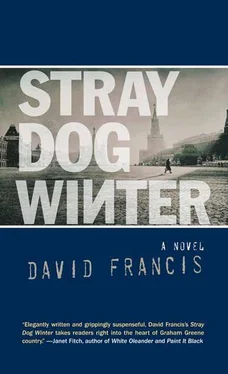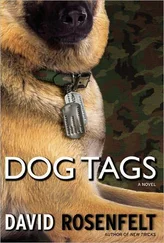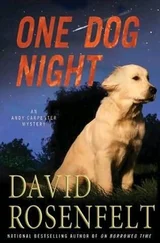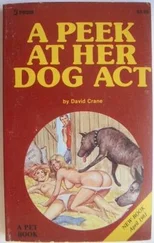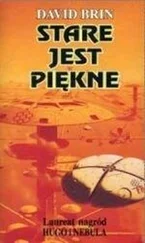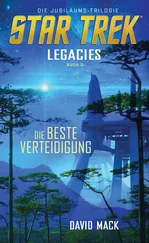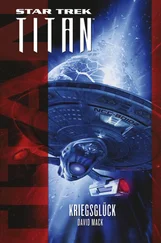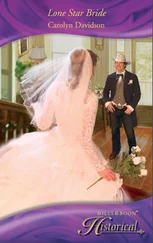Darcy pretended he was Russian, one of the pairs of myriad eyes that preyed on a distant Gorbachev, a tailored jacket in the front row, the purple stain on the brow just visible. He didn’t chance to check if someone pushed through behind him into the now-restless concourse. The speech at the funeral would be delivered by the new General-Secretary, the replacement, that’s what Aurelio had said. Gorbachev was the only man in the front row who looked under seventy-five, the Soviet saviour, but Darcy feared the general worked for him. He closed his eyes in a spell of giddiness, a sense of desolation, as if he could already feel a hand on his shoulder, a gun to his ribs. He focused on Gorbachev, Raisa beside him—he’d seen their photo in Pravda —then he made out Margaret Thatcher, her rooster’s face and hair in some elaborate rain scarf. He found himself yearning for the sight of his own hawk-faced prime minister, a rugged Australian frown, but Darcy’s doubting mind was riling up: why would they have let me plunge so deep into this crowd? Imagining the toxic feel of cloth over his nostrils, being hauled away from that wrong hotel, he gazed at a new row of artillery rattling over the cobbles, the chance of dissolving into this maze as the columns of soldiers turned like clockwork to salute the canopy of roses. A collective murmur as an old man struggled to the podium.
Merde alors! said someone nearby.
Darcy turned, the chance of a French reporter or exile, but a well-groomed woman met his glance. Svetlana, without makeup, in a fur scarf and cape, only three umbrellas away, her bitten hand cradled up into her coat and a glare that was chilling, the faintest shake of her head, a warning. Darcy’s own gaze dragged down to the icy cobblestones, slick underfoot, glinting as if they were precious. They were all over him. A piercing ache struck up in his glands, the giddiness again, but he focused on the pretence of Fin’s arrangement—he’d proceed to the exhibition, his painting up on a Soviet wall. He thought of Laika’s cocked head, a dog in a rocket hurtled through space, how they probably knew her capsule would explode, they knew before they sent her.
Darcy looked over again but Svetlana was gone, just a voice that wheezed and echoed through loudspeakers, a face projected now on a huge gritty screen on the Kremlin wall, eyebrows combed up like seagulls’ wings, like Brezhnev’s. It was Chernenko, a glazed look in his eyes, puffy cheeks and rounded chin, white hair pasted back from his forehead. Medals and stars pinned on his jacket and a sudden grim silence crept through the mourners, the chance of change like grit in frozen teeth.
Darcy stared paralysed, imagined the son-in-law sitting up for Sunday dinner in the company of this old asthmatic, pretending. The son-in-law who’d whispered smoke on Darcy’s toes, tried to warm them. As if some ill-omened blackmail could undermine this, accelerate history. The general, even if he worked for Gorbachev, seemed far more odious than the poor old salt from this man’s lips. The dull acceptance of the great harvest of people had Darcy wishing for this as their moment of revolt, a rush for the barricades, comrades mown down by the thousands. But no shout came from Darcy’s mouth, nor anyone else’s—they all knew it would be answered by the thuck of a silenced bullet. Margaret Thatcher wouldn’t even know their name. Darcy knew he’d be forced to pray for his own moment at the exhibition, in a crowd where he might be heard. There would be foreigners, artists, sympathisers.
A half-hearted clap rumbled through the gloom like the muffled sound of a thousand books being shut, applause at a funeral. Chernenko’s speech finished as abruptly as it had started, the last gasps of the union petering to a halt, he’d run out of gas. Euphonious music now blared from the speakers, as if a new era had just been ushered in. Darcy hunted among the iced-over faces for the man who’d cursed in French, the vague hope of Aurelio, or even Fin and Jobik in some disguise, but those about him were dispersing already. Darcy just stood, his feet painful again, gazed up at the misted screen. Gorbachev reaching quietly for Raisa’s hand, leaning forward to congratulate the frail Chernenko. Darcy wondered which of them really knew the general. Then he noticed Chernenko’s daughter behind her father, not hugging him or shaking his hand, just there. Tall, in the same full-length fur, her face strained as if in a trance. The only one really mourning. Darcy felt a kinship with her, the way he did with the sadness of women, as if she were Garbo in Camille .
The sound of snow-sweepers returning to work, like gigantic beetles belching fumes, the bearded city kneeling by the solid river, the burnished cupolas of the beautiful church muted in the failing light. Darcy felt his pyrrhic promise of Fin unravelling quietly ahead of him, like the early aubergine darkness climbing down over the square, a sense that all had been building up around what wasn’t here, gravity pulling things inward. Darcy hugged himself, nowhere to go but on to the Ploshchad Revolyutsii. He almost understood these people as they headed home to demonstrate behind closed doors. A snow shovel leaned against a barricade and he wanted to wield it like some crazy bedlamite, slam it down against the stones and let it clang, let them come for me, let them come. But he knew instead he should be listening to his instincts, in case he was given his moment, or it was given to Fin or Aurelio to magically steal him away.
Still, he moved across the well-worn stones amongst these dry-eyed people as if being herded towards a corner. The distant funeral platform was emptying, none of the brass had been targeted by Jobik, in the name of Jesus or genocide, the Turkish ConsulGeneral no doubt skulking in the back, preening.
Andropov’s coffin remained like an afterthought, upstaged, the military battalions marching away like mechanical ants towards the river. A snaking line to Lenin’s Tomb was already re-forming, comrades returning to their roots for solace. The ornate facade of GUM like a stage-curtain backdrop facing off against the Kremlin walls. The distant clock said twelve. It seemed to have stopped. Darcy surged with a last-ditch desire to run, get inside the infinite department store and get lost amongst a new crowd. The best place to lose a tail is GUM, Fin had told him. She said the KGB will run over you in cars if they have to, but they can’t do that in a department store; you go up and down the stairs between floors. Darcy understood now why she’d known such things. She’d pointed out wreaths around the busts of heroes in the shadows of the Kremlin battlements and quoted Trotsky and Lenin. They labour in vain in the vineyards of equality. But Fin was too cunning to run; she just disappeared.
Darcy felt himself shivering harder now, walking on to a place where Fin wouldn’t be. Death might come as some kind of release, he thought, the silenced shot. The last thing he’d see would be pigeons roosting in a bare tree like dull grey ornaments beneath the Hotel Moskva. He stared up at the featureless building, everything at right angles, not quaint or leaning like he’d imagined Europe, but windows from where his bullet might come, crisp as a dart through the air. The burn on his neck throbbed, the memory of the cigarette shoving him forward, Fin’s carrier pigeon, the sight of the ripped-open money belt in that Turk’s brown hands, the hundreds of rooms now glaring down; a city surveyed from the safety of windows, naked eyes squinting into their binoculars. His only hope would be darkness.
Darcy ate his third piroshki , full now but thirsty. And then a Cyrillic banner came into view, hanging above the portico of the Exhibition Hall. The opening of We are Building Communism. The entrance loomed, well guarded but not crowded, and Darcy wished he were arriving under other circumstances—his first piece in an international exhibition, albeit under Fin’s name—but as he walked up the stone stairs, ashamed of the general’s welt on his cheek, it felt as if he were being shunted in by transparent bayonets.
Читать дальше
